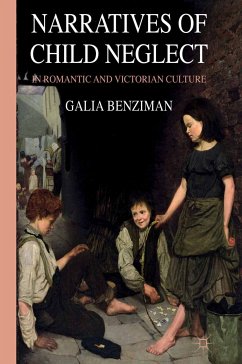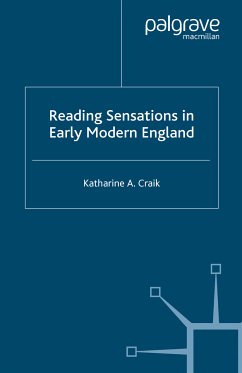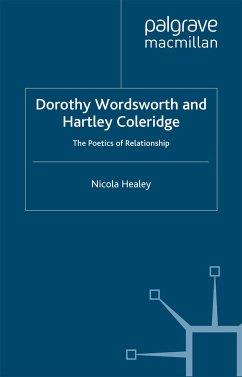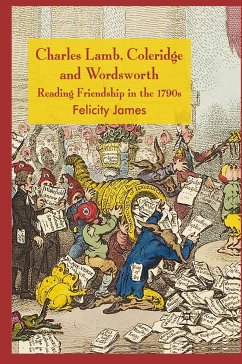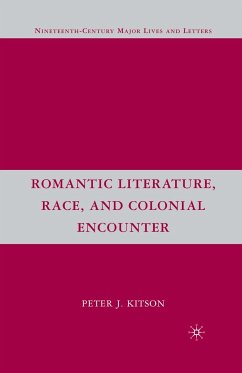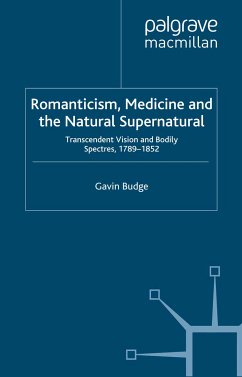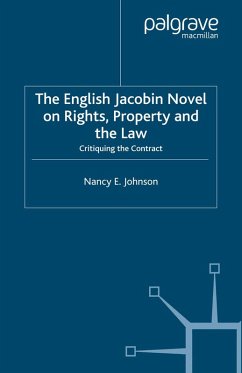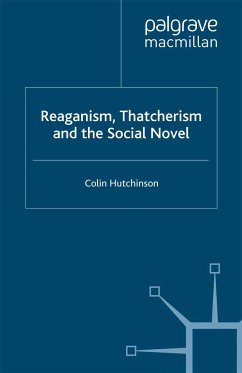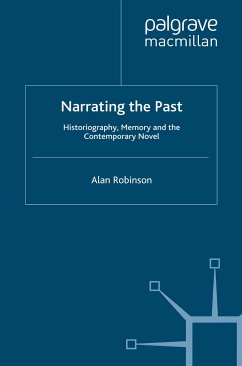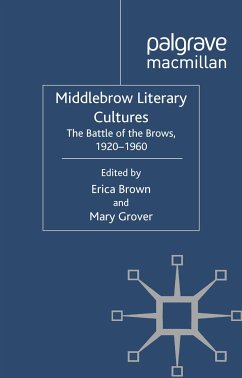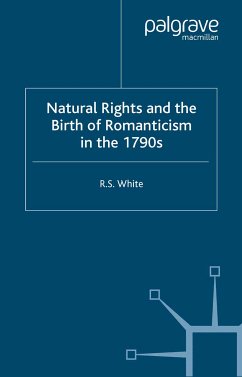
Natural Rights and the Birth of Romanticism in the 1790s (eBook, PDF)
Versandkostenfrei!
Sofort per Download lieferbar
40,95 €
inkl. MwSt.
Weitere Ausgaben:

PAYBACK Punkte
20 °P sammeln!
Following the American War of Independence and the French Revolution, ideas of the 'Natural Rights of Man' (later distinguished into particular issues like rights of association, rights of women, slaves, children and animals) were publicly debated in England. Literary figures like Wollstonecraft, Godwin, Thelwall, Blake and Wordsworth reflected these struggles in their poetry and fiction. With the seminal influences of John Locke and Rousseau, these and many other writers laid for high Romantic Literature foundations that were not so much aesthetic as moral and political. This new study by R.S...
Following the American War of Independence and the French Revolution, ideas of the 'Natural Rights of Man' (later distinguished into particular issues like rights of association, rights of women, slaves, children and animals) were publicly debated in England. Literary figures like Wollstonecraft, Godwin, Thelwall, Blake and Wordsworth reflected these struggles in their poetry and fiction. With the seminal influences of John Locke and Rousseau, these and many other writers laid for high Romantic Literature foundations that were not so much aesthetic as moral and political. This new study by R.S. White provides a reinterpretation of the Enlightenment as it is currently understood.
Dieser Download kann aus rechtlichen Gründen nur mit Rechnungsadresse in A, B, BG, CY, CZ, D, DK, EW, E, FIN, F, GR, HR, H, IRL, I, LT, L, LR, M, NL, PL, P, R, S, SLO, SK ausgeliefert werden.



